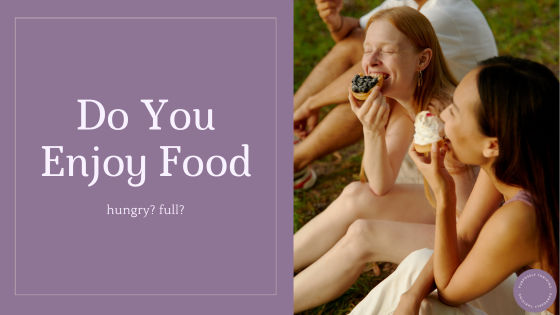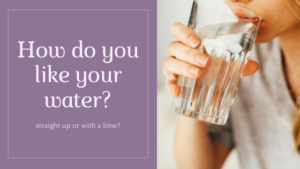Food is such a tricky subject these days. And enjoying food is even more so. Don’t eat meat, eat only meat, don’t eat dairy, eat lots of dairy, avoid all the glutens and their cousins, you won’t be healthy unless you eat gluten, only eat raw, never eat raw, and on and on and on. Until we find ourselves eating food, but not finding enjoyment in it and only trying to follow the “rules.” How are we supposed to navigate this field of fueling ourselves without going crazy when these are the messages that we are receiving every day?
It seems that there are more rules to follow about what to eat than there are steps to building a house. When Olympian Michael Phelps or JJ Watt were in the peak of training and eating to fuel their bodies, they have both been known to say they did not enjoy it, that it was a job, a chore to consume what they needed. In fact, in a 2016 interview to GQ, JJ Watt says “It sounds weird when you complain about having to eat so much, but it’s like a job. I eat two breakfasts, two lunches, and two dinners throughout the day. It’s always eating.”
When you are so fixated on what or how much to eat, there is very little reason to enjoy. But research shows that when we learn to eat intuitively and fuel with the good veggies and fruits, proteins and fats, our bodies perform better and our brains function better as well.
How do you go from eating with rules to eating for enjoyment and nourishment? The first thing is to figure out if you know what hungry feels like? Can you feel in your body what hungry is, or are you led by time or craving?
Next, do you know what full feels like? When you eat, are you paying attention to being satiated or are you focused on clearing your plate?
Once you know what those feel like, can you start to listen to those cues? Eat when you’re hungry and stop when you’re full. Push your plate away when you’re satiated and if you get hungry 40 minutes later, know that it’s okay to go back for a snack.
Find a balance in what you’re eating. If the majority of your meals are filled with nourishing foods, ie: leafy green veggies, protein and good fats and oils, then what does it matter if you have dessert for dinner one day?
We want to get to the point where when we are enjoying our time with others, we aren’t thinking if we should or should not partake of the dessert. If we are hungry, enjoy it. If we are stuffed to the gills already, maybe wait a bit or ask for cake to go so you can enjoy it when you are hungry.
It’s definitely hard to go against what is the “norm” but I’ll tell you what research shows, trying to keep up with the “norm” is leading to more and more cases of eating disorders and disordered eating. So, who wants to be normal anyways?
I’ll also be sure to include that if you have allergies, don’t partake of the allergy food. If you have sensitivities or intolerances, don’t partake of those either. Be sure to be aware of those, that’s different than trying to count calories or macros or thinking if I eat the cake, I’ll have to run an extra lap at the gym. That way of thinking is what we are wanting to get away from.
We want to find that space where we can enjoy our foods. That we can be confident in our choices and that we can fully be in the moment with joy when we partake.
So, find those sensations of hunger and satisfaction and start there! Let’s see what happens when we start enjoying what and how we eat. I’ll bet it’ll surprise you.
There’s so much more that we could unpack on this subject, but let’s just start with that. Hungry? Full? Let’s find out!
Go in grace and God bless,
Colleen
No content on this site, regardless of date, should ever be used as a substitute for direct medical advice from your doctor or other qualified clinician.



I recently read an article that explained two kinds of eating: one for nourishment and one for enjoyment. The neurons in our brain often get confused and we just eat. Becoming aware of how our bodies feel when we are hungry and full is soooo important, and so many of us don’t know those feelings. What great reminders Colleen!